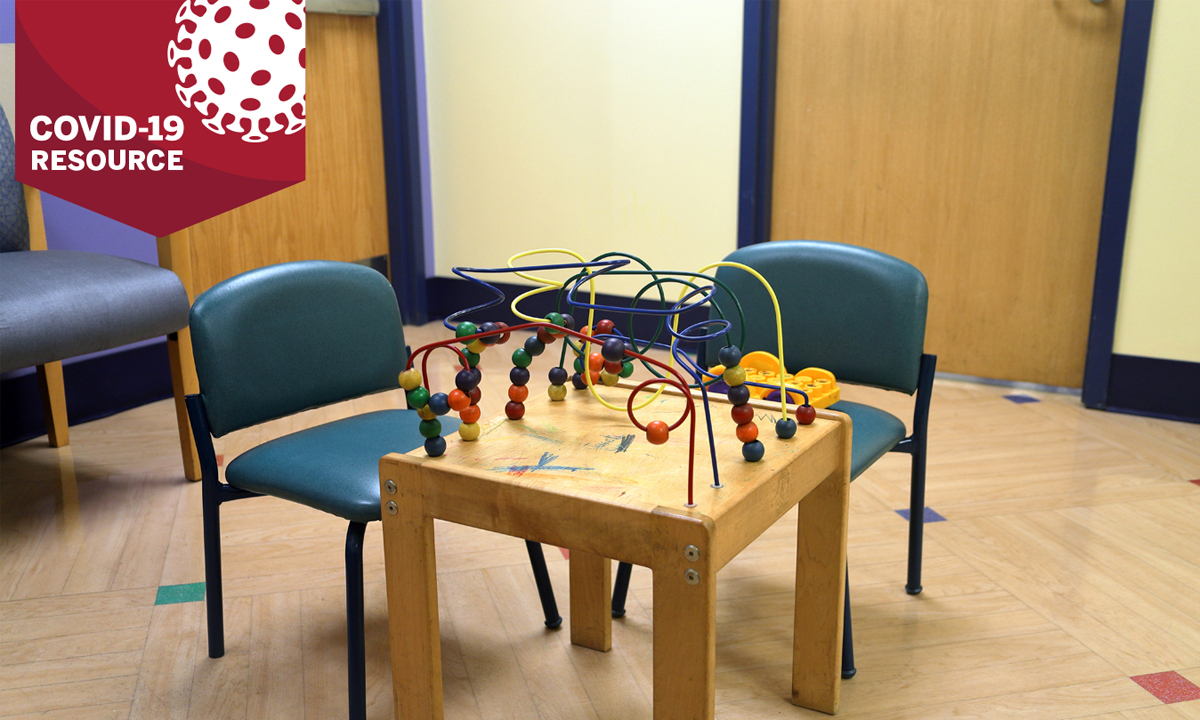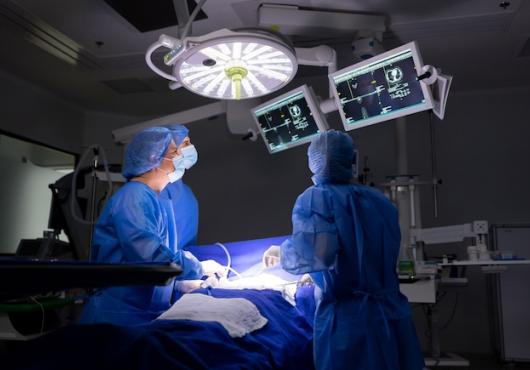
Information regarding COVID-19 has rapidly evolved. The content in this article provides a historical snapshot of events surrounding the date of posting.
Joshua Nagler, MD, MHPEd, senior associate physician in medicine at Harvard Medical School, recently led a panel discussion of pediatric specialists from Boston Children's Hospital, including infectious diseases, pulmonary, rheumatology, and cardiology experts: Mari Nakamura, MD, MPH, Debra Boyer, MD, MHPE, Lauren Henderson, MD, MMSc, Mary Beth Son, MD and Kevin Friedman, MD. Their conversation detailed current information on how COVID affects children. The following article is an excerpt from this discussion recorded on June 25, 2020 that has been condensed and edited for clarity and accuracy.
Let me start by asking about general patterns of illness, particularly comparing pediatric illness to adults. Has the United States experience echoed initial reports that children develop less severe illness with COVID-19 than adults?
Dr. Nakamura: Fortunately, our experience in Massachusetts and in the US support those findings. Overall, when children acquire this viral infection, they're more likely to be asymptomatic or to have mild symptoms. As a result, they're less likely to require hospitalization than adults. Those few children who are hospitalized are less likely to need Intensive Care Unit (ICU) care. Overall, unlike many other respiratory viruses, this illness does not seem to severely affect children.
Dr. Boyer: Even within populations of children with various underlying diseases, we have seen limited cases, meaning that complicated and sick children have not been admitted to the hospital in any great degree. It's a rare event.
Do we think there are different rates of infection or are children less likely to be ill and therefore, less likely to require medical attention?
Dr. Nakamura: For the most part, there's no evidence to suggest that children don't acquire this infection. There was an intriguing population-based study in Iceland in which kids under the age of 10 were less likely to be positive for the virus by polymerase chain reaction (PCR) testing than kids over age 10. However, it wasn't known, and the study’s authors acknowledge this—if children were less exposed due to Iceland’s rapid response to the pandemic or if kids are less susceptible to the virus.
If children are less susceptible, we don't exactly know why. There is no scientific evidence that kids are less likely to get the virus. There is speculation about relative immunity factors from their frequent exposure to other coronaviruses. Once children do get the virus, it's clear that for some reason, they don't tend to develop as severe an illness.
This may relate to how children’s immune response works in comparison to adults or to their underlying health. In general, children are healthier at baseline and often have less comorbidities than adults.
How do children’s overall outcomes compare to adults? Do we have that data or experience?
Dr. Nakamura: We've been fortunate, because children, even those quite sick initially, tend to recover relatively rapidly, especially compared with adults. We do have exceptions. We've had children who've required care, even ICU care, for weeks at a time. But at the same time, we've had patients who come in with severe illness and, within a day or two, are markedly better.
Dr. Boyer: We don't know the long-term sequelae of this virus. We're hopeful that since children are manifesting more mild disease now, they won’t have significant long-term outcomes. In the pulmonary group, we are following all COVID-positive children and monitoring their pulmonary function so we can better understand long-term outcomes.
There is perception that children are faring relatively well. For many, it raises questions about which restrictions are needed for children. Many of our colleagues are receiving questions from parents about safely returning to camp or school. What would you say to our colleagues who are delivering messages to patients and families?
Dr. Nakamura: We think it’s wise to be cautious and to follow the recommendations of our public health department to avoid transmission. Though rare, severe disease is still possible. We also want to avoid chains of transmission. Even if a child doesn't become ill, they could transmit the illness to somebody who is more vulnerable. While there is some data to suggest that children are less likely to be sources of the infection, children could still be a source of transmission.
Many of these recommended measures are common sense ways to avoid infections. We support good hand hygiene, wearing masks, and social distancing.
Dr. Boyer: I think we have seen effects of the lack of socialization and the challenges of online learning on our children. Balancing the risks and benefits as well as talking with your health care providers would be the right step in determining what is right for your family.
We've seen the emergence of this novel presentation of COVID-19, particularly in pediatrics, which has taken a number of different names, but is currently being called multisystem inflammatory syndrome (MIS-C). Can you explain more about this syndrome as well as the definitions being used across different agencies?
Dr. Son: This has been an unexpected development in the COVID-19 pandemic. Starting in March, children began being admitted in much larger numbers with what appeared like Kawasaki disease. However, children were presenting much sicker than usual with Kawasaki disease in regard to hypotension, signs of shock, and development of coronary artery aneurysms.
These inflammatory syndrome cases in children seem to follow the peak of adult COVID acute cases by between three to six weeks in dense urban epicenters. Very quickly, different agencies established different definitions of this syndrome, including the World Health Organization (WHO), Center for Disease Control (CDC), and the Royal College of Pediatrics and Child Health in the United Kingdom. These definitions include fever, inflammation in laboratory studies, signs of organ involvement, prominent gastrointestinal symptoms including abdominal pain, vomiting, and diarrhea. Rashes can occur.
Currently, these definitions are broad. As this occurred suddenly, it wasn't totally clear what consists of MIS-C. Over time, it’s likely these definitions will become more stringent.
Certainly, this MIS-C diagnosis has been popularized in the lay press. I think partly because children initially were seemingly less affected, then all of the sudden, there's the severity of this new presentation of COVID-19 in children. These children, do they need to be admitted to the hospital? Is it always a severe illness?
Dr. Son: At first, those being admitted with MIS-C were fairly sick and a fair number of children were at an ICU level of care. As with most things, the most severe cases were admitted first. Over time, at least in Boston, we're continuing to see children come in with signs and symptoms of MIS-C, but they are actually not quite as sick. I do think there will be a spectrum of disease.
As we are learning how to manage this syndrome, it appears some kids may be managed as outpatients. For now, we continue to have a fair level of vigilance until we figure out risk factors for the severity of illness. Generally speaking, we're recommending evaluation by a health care provider with early laboratory studies using a pretty low threshold. With laboratory studies and some observation, we can determine if children can recover at home.
Recognizing this is a newer illness and we're still learning, do we understand what the long-term consequences of MIS-C might be?
Dr. Friedman: There are several potential cardiac complications. The most frequent is left ventricular systolic dysfunction often associated with either cardiogenic, vasodilatory shock or both types of shock.
The second most common complication is coronary artery aneurysms, which is the most parallel to Kawasaki disease. Most of those coronary aneurysms are small. But there are concerning reports of larger, giant aneurysms in a small number of children and teenagers, which would be exceptionally unusual in Kawasaki disease.
We don't yet know the long-term prognosis in most of these children. We do know that with immunomodulatory therapy, most of the ventricular systolic dysfunction improves. Most series have reported that within three or four days, 75% or more children are better from an echocardiogram and a shock standpoint.
Let's discuss treatment. There's discussion about various different antivirals or medicines that weren't initially designed to be antivirals, being used for COVID. Do we have a sense of what may be effective in children for acute COVID-19 infection?
Dr. Nakamura: Initially, there was a long list of potential agents largely based on either activity against related viruses or early in vitro or animal data. It has become clear that many of these potential agents don't offer a benefit in antiviral activity.
The antiviral drug Remdesivir, which was originally studied against Ebola, shows some promise in early results. It's not effective against Ebola, but in some early results from adult COVID trials, it does seem to correlate with a faster recovery, particularly if begun earlier in the disease course. This is also a drug being used in pediatric cases. It's IV-only, so that naturally restricts it to just hospitalized patients.
But that's appropriate because we know children are unlikely to have progression with this disease and many children will recover with no intervention other than good, supportive care. Subjecting kids to a potentially toxic new agent does not make sense for the milder COVID cases.
That said, we do not have pediatric data about the effectiveness of Remdesivir. It could be different. Since children do tend to recover, the benefit may be smaller. At the same time, it seems a relatively safe drug, which is great. There will be more pediatric information forthcoming.


